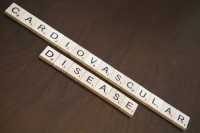
07 Sep CDC Finds Millions Still Have Heart Disease Risk Factors
MedicalResearch.com Interview with:
 Hilary K. Wall, MPH
Hilary K. Wall, MPH
Division for Heart Disease and Stroke Prevention
CDC
MedicalResearch.com: What is the background for this study?
Response: Despite decades-long reductions in cardiovascular disease (CVD) mortality, CVD mortality rates have recently plateaued and even increased in some subgroups, and the prevalence of CVD risk factors remains high. Million Hearts 2022, a 5-year initiative with a goal of preventing one million heart attacks, strokes and other acute cardiovascular events by 2022, was launched in 2017 to address this burden. This report establishes a baseline for the CVD risk factors targeted for reduction by the initiative during 2017–2021 and highlights recent changes over time.
These risk factors include: the “ABCS” of cardiovascular disease prevention: Aspirin when appropriate, Blood pressure control, Cholesterol management, and Smoking cessation; combustible tobacco product use; physical inactivity; and mean daily sodium intake.
MedicalResearch.com: What are the main findings?
Response: Millions of Americans have CVD risk factors that place them at increased risk for having a cardiovascular event, despite the existence of proven strategies for preventing or managing CVD risk factors. When we took a closer at the risk factors we found:
- 9 million people not taking aspirin as recommended
- 40 million people with uncontrolled blood pressure
- 39 million adults were not using statins when indicated
- 54 million adult tobacco users
- 71 million adults who were not physically active
That equates to over 213 million opportunities for better prevention and management of cardiovascular disease risk factors, over half of which are found in adults aged 35-64. Our findings suggest that in addition to universal strategies aimed at the entire population with and at risk for CVD, there is a need to focus action on high-burden, high-risk subsets of the population.
MedicalResearch.com: What should readers take away from your report?
Response: Although these numbers look daunting, they present us with opportunities to take action to improve America’s heart health. It is possible to prevent one million cardiovascular events by 2022 if everyone from healthcare professionals to individuals works together to take small steps to improve their health and the health of their communities.
MedicalResearch.com: What recommendations do you have for future research as a result of this work?
Response: We need to continue to monitor these indicators over time and assess disparities by sex, age, and racial/ethnic group.
Information on evidence-based Million Hearts strategies to reduce risk factors can be found at https://millionhearts.hhs.gov/.
Citation:
[wysija_form id=”3″]
[last-modified]
The information on MedicalResearch.com is provided for educational purposes only, and is in no way intended to diagnose, cure, or treat any medical or other condition. Always seek the advice of your physician or other qualified health and ask your doctor any questions you may have regarding a medical condition. In addition to all other limitations and disclaimers in this agreement, service provider and its third party providers disclaim any liability or loss in connection with the content provided on this website.
Last Updated on September 9, 2018 by Marie Benz MD FAAD
